Alcohol Addiction Therapy, Online or Face to Face
Alcohol Abuse: you can break free and change your life for the better…
The treatment of alcohol abuse has seen something of a shake-up in recent years, with several of the newer, alternative techniques and therapies receiving considerable positive press coverage, sometimes challenging the older, more established methods and principles.

In our addiction treatment we use a set of key principles and techniques based around Cognitive Behaviour Therapy. When appropriate, we introduce our own triple therapy method, which incorporates NLP, Mindfulness and PBT. Our unusual treatment protocol incorporates all three techniques, with each being used to underpin the other. During the extended lockdown period, we invested the time in writing, recording and editing the all new, fully downloadable weight-loss treatment.
CBT: the Treatment of Choice for Overcoming Addictions
According to the National Institute of Drug Addiction….
Cognitive-Behavioral Therapy (CBT) was developed as a method to prevent relapse when treating problem drinking, and later it was adapted for cocaine-addicted individuals, developing into the treatment of choice. Cognitive-behavioral strategies are based on the theory that in the development of maladaptive behavioral patterns like substance abuse, learning processes play a critical role. Individuals in CBT learn to identify and correct problematic behaviors by applying a range of different skills that can be used to stop drug abuse and to address a range of other problems that often co-occur with it.
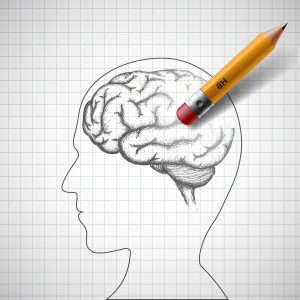
A central element of CBT is anticipating likely problems and enhancing patient’s self-control by helping them develop effective coping strategies. Specific techniques include exploring the positive and negative consequences of continued drug use, self-monitoring to recognize cravings early and identify situations that might put one at risk for use, and developing strategies for coping with cravings and avoiding those high-risk situations.
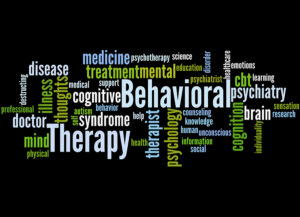
Research indicates that the skills individuals learn through cognitive-behavioral approaches remain after the completion of treatment. Current research focuses on how to produce even more powerful effects by combining CBT with medications for drug abuse and with other types of behavioral therapies. A computer-based CBT system has also been developed and has been shown to be effective in helping reduce drug use following standard drug abuse treatment.
How do you Treat People with Addiction?
Treating people with addictive disorders is often a challenge, always requiring a flexible approach, respecting that clients are individuals and have varied emotional and behaviour needs. The treatment involves the introduction of sometimes radical change into their life; the process can be either rapid or slow and laboured. As you would expect, the determination of the client to accept change is always key to the overall success.
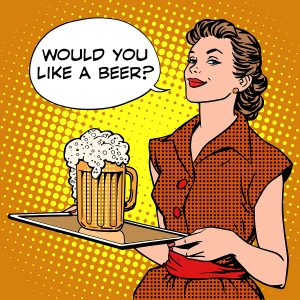
Other factors which affect the success of the treatment include clients being coerced into changing by their employer or partner: the decision to change really must be their own. Dealing with individuals who maybe do not feel ready to change and give up their addiction, even though it is having a negative effect on their lives, continues to be a challenge. Clients sometimes ask for partial help. For instance, someone who has a serious alcohol problem and who wishes not to stop drinking completely, but to be able to ‘cut down’. We see private clients, and whilst we strive to help and solve problems, we cannot always meet the clients’ demands.

During the first seven to ten days of the treatment package we will, with the client’s permission, strive to schedule an interview session with a Significant Other (SO) person in the client’s life. This is to assist us with the establishing of a personalised treatment protocol for each client. The SO interviews, (there may be more than one), are vital to ensure that the treatment package meets the client’s individual requirements. It will also reinforce and substantiate the information provided by the client, but from a completely different perspective.

One of the first questions asked by perspective clients is: “How many sessions will I need, and how much does it cost?” However, as you would maybe expect, until we have commenced the treatment programme, we honestly have no idea. It can be as few as six sessions, for example, or it may require many more. With regard to costs, as with all our treatment packages, the initial Case Conceptualisation Session is charged at £120, all other sessions are charged at £80 each.
As you will read on other pages of this site, we have been helping people overcome a number of different problems for many years. Whist we continue to offer non-residential treatment in Spain, over the years we have invested a considerable amount of both time and finances creating a cutting edge and very successful distance treatment programme, using media such as Zoom, FaceTime and Skype.

Although these sessions can be taken individually, we also offer a full ‘Virtual Rehab’ package, providing multiple sessions each day, along with 24/7 support, in effect mirroring the Rehab experience, but from the comfort and security of your own home, and of course at a fraction of the normal costs.
Contact Us

Should you have any additional questions regarding the treatment we offer, do feel free to drop us an email, we will be pleased if requested to call you back for an information conversation –
Tel: +44 (0)20 3769 5692, or +34 951 311 591. Contact us by email here
 National and International Home Visits
National and International Home Visits
We continue to offer our unique range of treatment packages to clients around the world in their own homes. For details and prices please feel free to contact us by phone or email.
Tel: +44 (0)20 3769 5692, or +34 951 311 591. Contact us by email here

Over the last fifteen years, we have been featured in just about every UK National Newspaper, and in hundreds of magazines, including titles such as Vogue, Marie Claire and Psychologies Magazine. We flew to New York, where our work was the subject of a news special on the Good Morning America TV show. We have also appeared in numerous UK shows. In July 2018, we were interviewed by Holly Willoughby and Philip Schofield on the This Morning TV Show. You can read more in the News Section of this site.

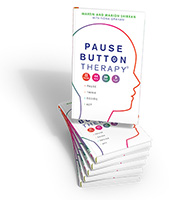 During 2012, we signed a multi-title international publishing contract with Hay House Publishing
During 2012, we signed a multi-title international publishing contract with Hay House Publishing 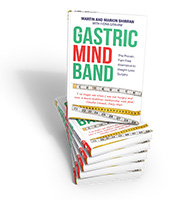 House in New York. The first two books are available globally from Amazon. Professor Philip Zimbardo of Stanford University in San Fransisco wrote the foreword of the Pause Button Therapy book. The books were also endorsed by Professor Windy Dryden of Goldsmiths University London.
House in New York. The first two books are available globally from Amazon. Professor Philip Zimbardo of Stanford University in San Fransisco wrote the foreword of the Pause Button Therapy book. The books were also endorsed by Professor Windy Dryden of Goldsmiths University London.

 Psychologies magazine dedicated two pages to the new Pause Button Therapy which was developed by Martin and Marion Shirran.
Psychologies magazine dedicated two pages to the new Pause Button Therapy which was developed by Martin and Marion Shirran. Vogue magazine featured the Shirrans’ Gastric Mind Band therapy in the ‘Vogue Beauty’ section in January 2011, commenting on the many testimonials and the short, four-day treatment time.
Vogue magazine featured the Shirrans’ Gastric Mind Band therapy in the ‘Vogue Beauty’ section in January 2011, commenting on the many testimonials and the short, four-day treatment time. “Pause Button Therapy is wonderfully simple, but simply effective.” Stelios N. Georgiou. Professor of Educational Psychology. University of Cyprus
“Pause Button Therapy is wonderfully simple, but simply effective.” Stelios N. Georgiou. Professor of Educational Psychology. University of Cyprus “The new concept of PBT developed by the Shirrans addresses the vital moment of decision making in all of our lives.” Nick Clements, author of ‘The New Ages of Men’
“The new concept of PBT developed by the Shirrans addresses the vital moment of decision making in all of our lives.” Nick Clements, author of ‘The New Ages of Men’ “The Shirrans have developed a simple but powerful form of therapy that has the potential to change lives for the better.” Lynn Crilly, author and counsellor
“The Shirrans have developed a simple but powerful form of therapy that has the potential to change lives for the better.” Lynn Crilly, author and counsellor